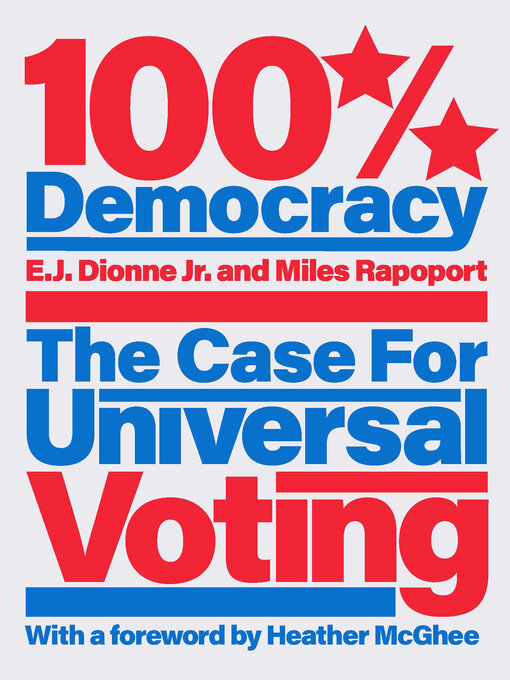Americans are required to pay taxes, serve on juries, get their kids vaccinated, get driver's licenses, and sometimes go to war for their country. So why not ask—or require—every American to vote?
In 100% Democracy, E.J. Dionne and Miles Rapoport argue that universal participation in our elections should be a cornerstone of our system. It would be the surest way to protect against voter suppression and the active disenfranchisement of a large share of our citizens. And it would create a system true to the Declaration of Independence's aspirations by calling for a government based on the consent of all of the governed.
It's not as radical or utopian as it sounds: in Australia, where everyone is required to vote (Australians can vote "none of the above," but they have to show up), 91.9 percent of Australians voted in the last major election in 2019, versus 60.1 percent in America's 2016 presidential race. Australia hosts voting-day parties and actively celebrates this key civic duty.
It is time for the United States to take a major leap forward and recognize voting as both a fundamental civil right and a solemn civic duty required of every eligible U.S. citizen.

